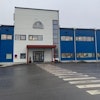“Education, Education and Education” was how Tony Blair described his priorities for government in his party conference speech of 1996.
The former UK Prime Minister’s name may now be more associated with things other than education, but had he been a little more informed in certain areas, his reputation may well be higher in some quarters than it is today.
But why was this mantra so important then - and remains so today?
Why education matters
From a production point of view, education can help to raise productivity and economic growth.
Productivity can be defined as the quantity of goods and
services that a worker produces per unit of time with the skills and tools
available, and the more high productivity jobs in a company or country, the
richer that company or country will be.
Investing in education can be as important as investing in plant or equipment. We cannot expect investment in high productivity equipment to be optimal if there is no suitably qualitfied workforce available to staff such investment. So a strong commitment to education to create a workforce with high levels of productivity is a prerequisite for growth and development.
Rising rewards
Education may be outward looking seeking to inform the general public at large - and in my last post I wrote about an excellent initiative organized by the Royal Veterinary College in the UK - but it is just as important for any business to ensure that its workforce is as capable as possible. Be it university degrees, on-line courses or in-house training, the poultry sector has much to gain from keepings its human capital as educated as possible.
An educated workforce can lead to higher returns on
investment and higher profits. Prices can be lower, improving market position
and benefitting the consumer. There can also benefits for the environment.
At a managerial level, managers must be able to structure
their businesses optimally, allocate resources efficiently, ensure the correct
production level and scope and make sure that marketing is properly aligned. In
the wider workforce, staff cannot raise a business’ output without the
knowledge of how to do so. Improving worker skills is essential to
strengthening competitiveness, boosting an organisation’s resilience and
enhancing innovation.
We often are told of how the demand for poultry meat will
continue to rise over coming years as living standards continue to rise in the
developing world, and various technologies and farming methods are put forward
as the way to meet this demand. But without a workforce that knows what it is
doing and working efficiently, a part of the puzzle is missing.
And it should not be forgotten that we live in a fast changing world with fickle consumers and markets that want flexibility and adaptability. Without a properly skilled and educated workforce it is all too easy for producers to fall behind and disappear.
www.wattagnet.com/Lessons_learned_at_the_Vet_College.html


















